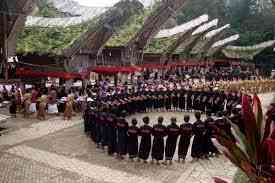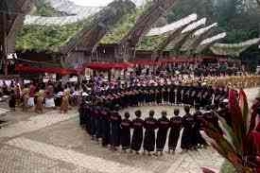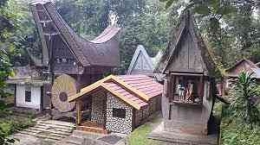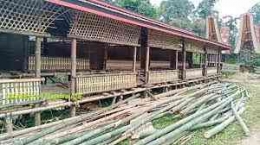Born and living in Indonesia has a lot of diversity from different cultures, As a child that was born in Torajan culture, my family still has handed tradition from the past generation, especially from my father. Like the other culture in Indonesia, we also have a generic culture like we have to respect to the elder, not saying word that should not have to say. But some culture more specific like the culture for the death. Toraja culture were quite known for their culture for the people who were close past. One of the culture is the Rambu Solo or the ceremony for the death. This ceremony is a tribute ceremony for people who have died, especially for people who are elderly. Not all people of Toraja descent still carry out this culture, there are several factors that also influence such as religious factors that are contrary to the culture, places of residence that are not possible to carry out this culture, or a culture that has faded due to modernization and acculturation. Even though my father and I were not born and raised in Toraja, we are still committed to following the culture even for now.
It is this deep structure, the conscious and unconscious assumptions about how the world works, that unifies a culture, makes each culture unique (Samovar, 2015). From Samovar,s book mention a culture unique because they have their own perception of something. Of course, not everyone views death in the same way. There are also many ways that Rambu Solo becomes contra in the view of people who have different cultures. Not a few people think of this event as a waste, a waste of wealth, and a mere show off. For Toraja people this event is a form of respect for those who have passed away, because letting go of people who have been in our lives is not an easy thing, therefore they deserve the honor in the form of a Rambu Solo event itself.
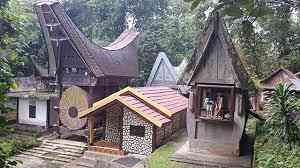
Apart from being a form of cultural respect, there are also several values that teaches like Gotong Royong (mutual cooperation), helping, social and kinship where this event requires a large number of people to carry it out, ranging from lifting coffins, women who work in the kitchen to serve event guests, people who build simple cottages for event guests (lantang) and so on. Some things that are typical of this event such as wearing a black outfit, the corpse is not buried in the ground but is buried in a small house (patane) or in a giant rock that is carved out, a lot of cattle in the form of butchered pigs and buffalo, and a lot other. The reason why my family still followed this culture is as a tribute to people who have died and also an effort so that this culture does not fade with modernization and globalization. Of course there are also things that were taught from the previous generation not to be done or what is commonly referred to as (pemali) such as, not being allowed to take things from the cemetery, not being allowed to slaughter chickens at funerals, and so on.
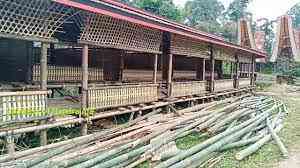
Baca konten-konten menarik Kompasiana langsung dari smartphone kamu. Follow channel WhatsApp Kompasiana sekarang di sini: https://whatsapp.com/channel/0029VaYjYaL4Spk7WflFYJ2H




